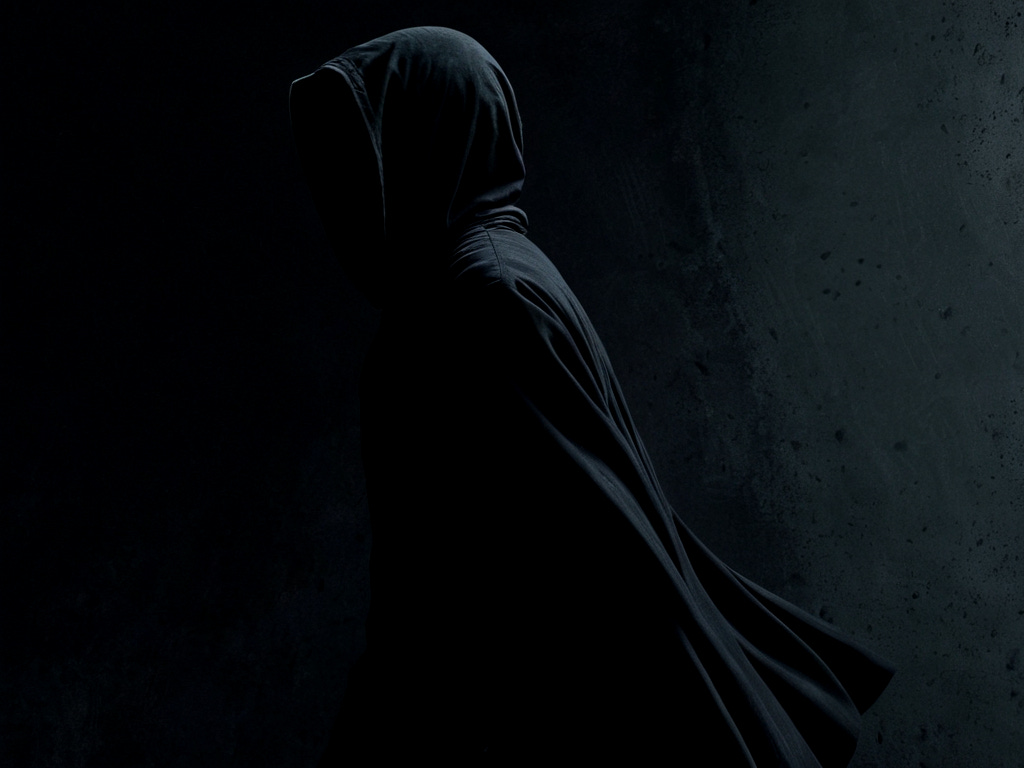On a dusty shelf of some old store, a Baedeker, left in our universe by a traveler from another, waits to be discovered by that most patient and intrepid of explorers: the reader.
It was strange to be seen as a woman again. That’s what I remember of my captivity. By then, I had not been female in many years. I had given it up with all the rest. Aspirants surrendered, totally: property, name, gender, will. Our parents were told to leave nothing, but of course many did. I remember the cries and scuffles, magnified in echo, as we shuffled in single file through the lofty stone brackets of the Terminium, a vast maze without doors. Hands found their way into our pockets, under our arms, between our legs. Fingers probed our mouths and anuses, removing not just contraband but the complete detritus of our old selves, right down to fillings that might be melted for coin. Those who hid some last vestige—a locket or note from a loved one—grasped at it as it was removed, only to be struck remorselessly by an adult bearing a staff. We were gathered and our eyebrows were pierced in a continuous line, along with our lower lips, and a dancing curtain of thin chains was hung between them. We were taught to bind our bodies with the oeutra, the white wrapping, over which we were dressed simply. We bore no insignia, no mark of status or rank. We were given secret designations in place of names and told to sleep on the floor in a great room with no windows or furniture or blanket. Nothing destroys shame like the shivering need for warmth. We clung to each other in all places private and dear. We would need to, to survive our ordeal.
I recall feeling disorientated some weeks in, when I briefly remembered being a girl. I was reciting the Prenacles with the others, rapping my knuckles between each verse, when suddenly I sneezed. I had not sneezed since before my admission, or if I had, I didn’t remember it, and that simple act triggered a memory of my mother wiping my nose. From there, I remembered the rest: my father’s coarse hands, the spices in the kitchen, candle-lit dances with my friends by the lake, the feel of my feet as they slid under the canvas blanket that covered my bed, both prickly and inviting. I began to cry and was quickly removed. My own fists began to beat me, against my will. But I did not want to let go of my blanket or my mother and I kept crying and beat myself unconscious.
Rarely after that did I imagine myself a girl. Yes, we had our secret guesses. Which of the others was a boy? Who was Almatian and who from Demeria? No one ever revealed their doubts and suggestions to me, but I could see it in their eyes, as I’m sure they could see it in mine, even behind our dancing curtains. If we made friends, we would wake up to find them removed to another sabbot—or we would be removed ourselves, as I was in my second turn. That was the most difficult. My first seasons had almost seemed a game. Everything was new, like a puzzle to be figured out. It was painful, yes, but that pain was meant to crack something leaden and evil so that it could be shed and something luminous and great could be born, or so I believed. I was suspicious the second time and never felt the privations of our order as distinctly or as deeply as at first vespers. I thought often about leaping from the top of the Great Arch to land amid screams. Others did as well. Doubt amplifies doubt, and for each cry of frustration, for each failure of our peers to achieve a miracle, our own anxieties grew.
The last time I was female was at the end of our fifth turn, when our families were allowed to clan one last time. We were told it was—Well, honestly, I don’t remember what we were told. It was a test. Those who found it too difficult to return were expelled, as were those who found it too easy. Ours was not a refuge, a place to hide from work or abuse. Those who did not waver, who left nothing behind, found themselves unable to enter the Terminium, even as the rest of us passed. Our calling required sacrifice and the strength to make it. Those who had not both were turned away. I do not know what happened to them or where they went, but many of them remain very dear to me.
For the next nine turns, I was neither girl nor woman. I was an aspirant, and whatever doubts lingered at my mother’s last embrace, when I became angry at her for tempting me from my calling, were extinguished the first time I moved an object with my mind. I had failed in my task many times, more than the others, and was taken deep into the maze and left. I drank water steeped in the leaves of the hee tree, whose sap the Imperium surgeons used to make an anesthetic paste. The extract did not dull the mind, only the senses. The more of the water I drank, the more distant everything became. My feet no longer felt cold on the floor. The white wrapping no longer itched. Everything I ate tasted of saliva. Words, if I heard them, sounded like echoes down a long hall. It was as if I inhabited a planet entirely unto myself. Lost in the study of shapes, I would raise my head to find the season had changed. When I lowered it, the season changed again.
And then it ended. My food and water were taken, and the world came crashing back. Everything was too bright, too loud, too fast. Many times I shut my eyes and shook my head so hard I thought the chains on my face might rip free. I discovered a soft impression in the wall where I stood and beat my head, over and over, hoping to dull my mind. I stopped and ran my fingers over the smooth stone and wondered how many others had done the same. I had known hunger often enough, that imp that gnaws our insides, but I learned then there is no demon like thirst. Every parched cell of my body, shriveling in want, called out to the cup just beyond my reach.
On the third day, it moved.
By the time of my ascension, the odd realization of my body—while sitting on the toilet or suffering the occasional cycle that broke free—felt as alien to me as any language I couldn’t speak. My body was an anchor, nothing more, a thing that kept me tethered to the world. I could’ve just as easily been a boy as not. All of it, right down to the plumbing, was as incidental to my being as the shape of my ears, and I was glad when, just before graduation, they finally cut it away. My fingers were dipped in Incomium dye, and I was a Mysterian at last.
Crouching naked at my capture, seeing the look of surprise—and disgust—on the soldier’s faces as the white wrapping was ripped free, I felt that which I had not in so long. To them, I was my body. And they would not touch it. All that I had achieved, all that I had sacrificed in the achieving, the blood of my blood, the rape of my self in a prison without doors, mattered less than the air they expelled in horror. I turned and covered my body, my anchor, despite that there was nothing left to hide. I had thought by becoming a Mysterian I would become terrible. If I could not arouse desire, then I at least wanted to arouse fear. I wouldn’t have said that. I would’ve said the reason was etched in ancient Merigorn under the Great Arch. But somehow the truth had been locked in that cell with me. I wasn’t a god or monster. I was just a thing.
I was not touched. I was not tortured. Too dangerous to be released, I was imprisoned and forgotten. No one from the order came to rescue me. My family no longer knew I even existed. For many months, my mind would move nothing. Not a coin. Not a cloth. Not a hair. Not until my jailers, neglectful, reintroduced me to the demon thirst. I retrieved a cup through the bars and held it to the lips of another, and I was born again.
The Ordeal
On a dusty shelf of some old store, a Baedeker, left in our universe by a traveler from another, waits to be discovered by that most patient and intrepid of explorers: the reader.





